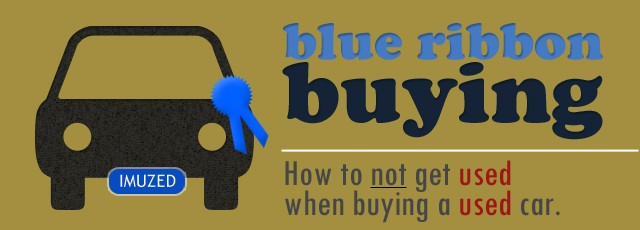
“Buying a used car is a great way to save money — and get a great vehicle. But buying used can also be nerve-wracking. Do you really know what you’re buying? The tips on this page were designed to help you educate yourself and avoid scams. Good luck!”
Before You Go Shopping for a Vehicle
- Consider the price range that fits your budget. Set a limit you can afford and stick to it. Remember to factor in insurance and license costs.
- Decide what kind of vehicle you want and what features are important to you – like fuel economy, towing or cargo capacity and other options. Visit online car buying sites to preview vehicles that interest you.
- Get your credit report and credit score. You can get this information from the 3 major credit bureaus. The higher your score, the better the interest rate you can qualify for.
- Check with your bank. Find out the current interest rate for car loans and whether you qualify for a loan. Your bank may be able to provide a better loan than one you’d get from a car dealer.
- Check the “blue book” value of the car you might buy, as well as the value of the one you presently own. You can review used car values at:
Kelley Blue Book: www.kbb.com
NADA Guide: www.nadaguides.com
At the Dealers
Buying a car is exciting, but keep your emotions in check. If a salesperson knows you can’t live without a particular car, you’ve lost your bargaining power.
- Look under the hood for anything obvious, like oil leaks or heat damage
- Carefully check the body and paint – differences mean it was damaged previously
- Check for any signs that the vehicle has been wet for extended period of time such as mold, mildew or rust inside car or in the trunk where the spare tire sits
- Test drive the vehicle. Check for smoke, fumes and odd noises, and that all lights, windows, wipers, air conditioner/heater and gauges work.
When you find the Car You Want
Don’t be rushed! Don’t give in to high pressure, “this offer is only good today” pitches. Any legitimate deal will be there tomorrow. Be prepared to walk away if the price is not fair.
Be sure to take the car to a mechanic you trust and have it checked for any major repairs needed now or in the near future. An “inspection” performed by the dealer is no replacement for having your own mechanic look at it.
For a small fee, you can get the vehicle’s complete history, including major damage or title defects, from:
AutoCheck: www.autocheck.com
Carfax: www.carfax.com
You may want to require the seller to provide this report to you before you complete the purchase.
Before you sign the dotted line: Understand the details of the sale and correct any blank spaces left in the contract.
- Read and understand the warranty – it may be full, limited or “as-is.” An “as-is” warranty means you have no warranty at all.
- Extended service contracts (or after-market warranties) will cost you extra. For information on potential problems with extended service contracts, go to: http://www.consumer.ftc.gov/articles/0240-extended-warranties-and-service-contracts
- Make sure you see the vehicle’s title. The title may show:
- Liens
- Statements or “brands” such as flood damage, an insurance determination that the vehicle was a “total loss” or that it was rebuilt
- The odometer reading when last sold
Verifying that the seller has the title before you buy may save prolonged legal problems and difficulties should you want to resell the vehicle.
- On your loan, know:
- Amount of monthly payment
- Interest rate
- Duration
- Total amount owed
- Before you sign anything, make sure you read and understand it.
- There is NO 3 day right to change your mind. Once you sign, the vehicle is yours, potential problems and all.
- Get spoken promises in writing and insist on receiving copies of all paperwork.
If you are buying a used car advertised in the newspaper or that was parked with a for-sale sign in the window, be especially cautious. Vehicles that may have been stolen, flooded or wrecked may be sold this way by con artists posing as original owners.
MT’s Motor Vehicle Division – provides additional information to inform and educate in the buying of a new or used vehicle in Montana.
Federal Trade Commission’s Facts For Consumer – Buying a Used Car. The FTC also offers four videos with important tips for each stage of the car-buying process. These mobile-friendly videos cover: Spotting Deceptive Car Ads, Buying a Used Car, Financing a Car, and Understanding Car Add-ons.
Buyers Guide from the FTC – Always get spoken promises in writing. Bring this form with you when you’re ready to buy a used car.

